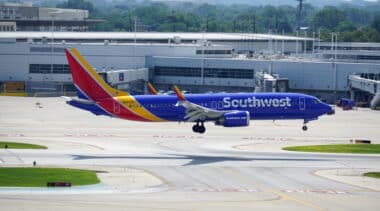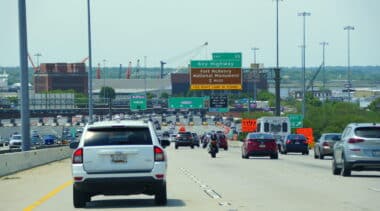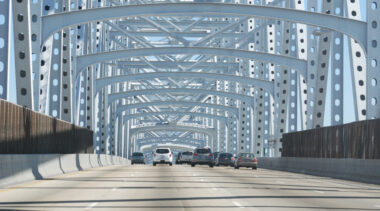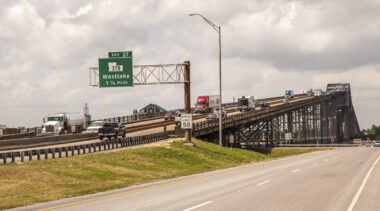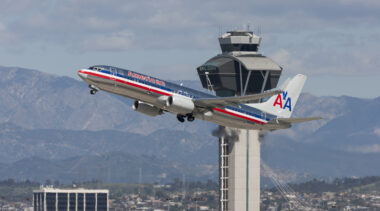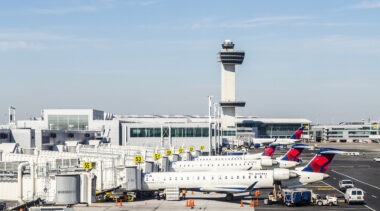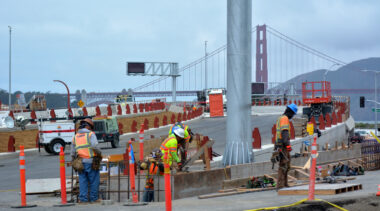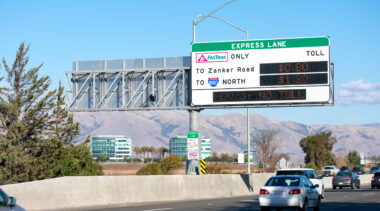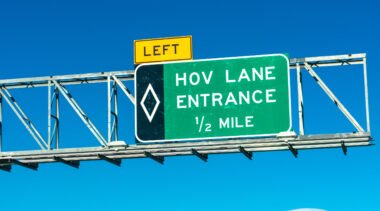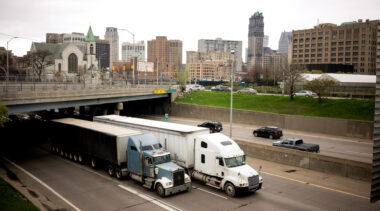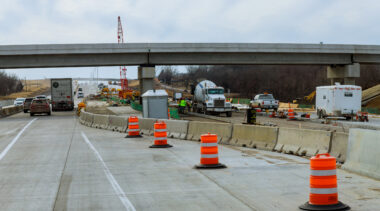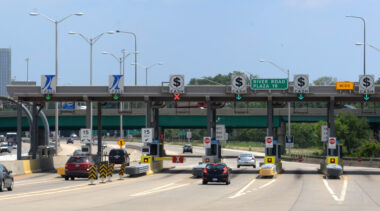Robert Poole is director of transportation policy and Searle Freedom Trust Transportation Fellow at Reason Foundation.
Poole, an MIT-trained engineer, has advised multiple presidential administrations and transportation departments on infrastructure issues.
Surface Transportation
In the field of surface transportation, Poole has advised the Federal Highway Administration, the Federal Transit Administration, the White House Office of Policy Development, National Economic Council, Government Accountability Office, and state Departments of Transportation in numerous states.
Poole's 1988 policy paper proposing privately financed toll lanes to relieve congestion directly inspired California's landmark private tollway law (AB 680), which authorized four pilot toll projects including the successful 91 Express Lanes in Orange County. More than 20 other states and the federal government have since enacted similar public-private partnership legislation. In 1993, Poole oversaw a study that coined the term HOT (high-occupancy toll) Lanes, a term which has become widely accepted since.
California Gov. Pete Wilson appointed Poole to the California's Commission on Transportation Investment and he also served on the Caltrans Privatization Advisory Steering Committee, where he helped oversee the implementation of AB 680.
From 2003 to 2005, he was a member of the Transportation Research Board's special committee on the long-term viability of the fuel tax for highway finance. In 2008 he served as a member of the Texas Study Committee on Private Participation in Toll Roads, appointed by Gov. Rick Perry. In 2009, he was a member of an Expert Review Panel for Washington State DOT, advising on a $1.5 billion toll mega-project. In 2010, he was a member of the transportation transition team for Florida's Governor-elect Rick Scott. He is a member of two TRB standing committees: Congestion Pricing and Managed Lanes.
Aviation
Poole is a member of the Government Accountability Office's National Aviation Studies Advisory Panel and he has testified before the House and Senate's aviation subcommittees on numerous occasions. Following the terrorist attacks of Sept. 11, 2001, Poole consulted the White House Domestic Policy Council and the leadership of the House Transportation & Infrastructure Committee.
He has also advised the Federal Aviation Administration, Office of the Secretary of Transportation, White House Office of Policy Development, National Performance Review, National Economic Council, and the National Civil Aviation Review Commission on aviation issues. Poole is a member of the Critical Infrastructure Council of the Los Angeles Economic Development Corporation and of the Air Traffic Control Association.
Poole was among the first to propose the commercialization of the U.S. air traffic control system, and his work in this field has helped shape proposals for a U.S. air traffic control corporation. A version of his corporation concept was implemented in Canada in 1996 and was more recently endorsed by several former top FAA administrators.
Poole's studies also launched a national debate on airport privatization in the United States. He advised both the FAA and local officials during the 1989-90 controversy over the proposed privatization of Albany (NY) Airport. His policy research on this issue helped inspire Congress' 1996 enactment of the Airport Privatization Pilot Program and the privatization of Indianapolis' airport management under Mayor Steve Goldsmith.
General Background
Robert Poole co-founded the Reason Foundation with Manny Klausner and Tibor Machan in 1978, and served as its president and CEO until the end of 2000.
He was a member of the Bush-Cheney transition team in 2000. Over the years, he has advised multiple presidential administrations on transportation policy.
Poole is credited as the first person to use the term "privatization" to refer to the contracting out of public services and is the author of the first-ever book on privatization, Cutting Back City Hall, published by Universe Books in 1980. He is also editor of the books Instead of Regulation: Alternatives to Federal Regulatory Agencies (Lexington Books, 1981), Defending a Free Society (Lexington Books, 1984), and Unnatural Monopolies (Lexington Books, 1985). He also co-edited the book Free Minds & Free Markets: 25 Years of Reason (Pacific Research Institute, 1993).
Poole has written hundreds of articles, papers, and policy studies on privatization and transportation issues. His popular writings have appeared in national newspapers, including The New York Times, The Wall Street Journal, USA Today, Forbes, and numerous other publications. He has also been a guest on network television programs such as Good Morning America, NBC's Nightly News, ABC's World News Tonight, and the CBS Evening News. Poole writes a monthly column on transportation issues for Public Works Financing.
Poole earned his B.S. and M.S. in mechanical engineering at the Massachusetts Institute of Technology (MIT) and did graduate work in operations research at New York University.
-
Incentivizing US airport privatization
The changes needed to enable US airport P3 leases to compete on a level playing field with airport P3 or privatization activity in Europe, Latin America, and the Asia-Pacific.
-
Why commercial space should lead the U.S. return to the moon
NASA should adapt the public-private partnership approach that it has used successfully for cargo and crew delivery to and from the International Space Station.
-
Annual Transportation Finance Report 2025
Infrastructure investors financed $77.5 billion worth of public-private partnership infrastructure transactions last year.
-
Transportation and climate change: Public transit
This report focuses primarily on operating energy intensiveness and transportation energy impacts as affected by public transportation’s influence on land use.
-
Interstates first: Why the transition to road user charges should begin with limited access highways
To begin the transition from gas taxes to per-mile charging, the U.S. needs a plan to address drivers' privacy, double taxation concerns, and the cost of collection.
-
Transportation and climate change: Travel trends and GHG emissions
As the single largest domestic GHG emissions-producing sector, transportation is inevitably a focus of climate change mitigation initiatives.
-
Reforming environmental litigation
There is growing bipartisan support that the NEPA process, as it has evolved since the legislation’s enactment in 1970, has gone too far, placing obstacles and delays in the way of needed energy and transportation infrastructure projects.
-
Louisiana needs to transition from per-gallon gas taxes to per-mile user fees
With a mid-level shift to electric vehicles, Louisiana could anticipate annual fuel tax revenue would be reduced by $250 million by 2040 and over $325 million by 2050.
-
A public-private partnership is the best way to rebuild Louisiana’s Calcasieu Bridge
Financial risks are transferred from taxpayers to private investors, including responsibility for cost overruns, late completion, failure to meet traffic forecasts, and toll revenue shortfalls.
-
Air traffic control as a public utility
The case for changing the way air traffic control is provided in the United States.
-
Recommendations for the FAA reauthorization bill
Congress should encourage the adoption of space-based ADS-B in air traffic control, the deployment of remote air traffic control towers, and more.
-
Using DBFOM public-private partnerships benefits drivers, states and transportation contractors
Strategic use of design-build-finance-operate-maintain public-private partnerships for major transportation projects considerably expands the total money available for transportation infrastructure.
-
Tolling value proposition for trucking and state departments of transportation
The question addressed in this paper is whether toll-financed interstate highway modernization could overcome the long-standing objections of the trucking industry, as well as concerns of state DOTs about the coming decline in fuel tax revenues.
-
How express toll lanes benefit drivers
Today, 60 express toll lane projects across the country are providing commuters with faster and more reliable alternative to congested highway lanes.
-
HOV lanes have failed to reduce traffic congestion or emissions
Carpooling plummeted from 19.7% of commuters in 1980 to only 8.9% in 2019.
-
Replacing Michigan’s gas tax with mileage-based user fees
A transition from per-gallon fuel taxes to a mileage-based user fee system should be considered as a strategy to ensure adequate road funding for Michigan’s future.
-
What is a revenue-risk public-private partnership?
And when is revenue risk the better financing choice for the state and taxpayers?
-
A guide to customer-friendly tolling policies to help states rebuild highways and bridges
How states can implement customer-friendly tolling policies that address worries like double taxation and create genuine value for drivers and truckers.

